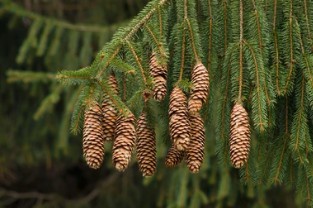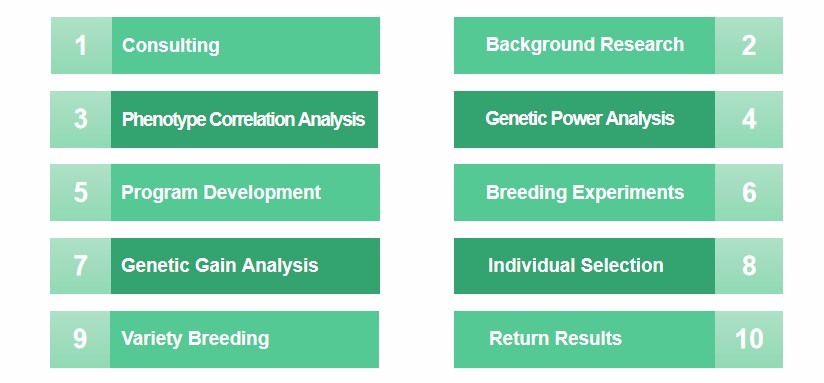
Norway spruce (Picea abies, P. abies) is a spruce genus in the Pinaceae family, native to northern and central Europe. This species is highly adaptable, frost-resistant, and has excellent growth potential. It is cultivated in the eastern United States, eastern Canada, and northeastern China and is an essential industrial timber tree species.
P. abies is a large evergreen conifer with a trunk diameter of up to 1.5 m and a height of up to 55 m. It has a beautiful shape and can be used as an ornamental tree in gardens or as an afforestation tree. At the same time, P. abies has relatively high holocellulose content, low lignin content, and high average fiber length, making it an advantageous species for pulp and paper making.
Lifeasible, as an excellent plant breeding expert, we have mature plant molecular technology. We can provide our customers with various P. abies breeding solutions to select the highest quality and most suitable tree species for you while reducing costs.
As early as the middle of the last century, many Nordic countries started large breeding programs for P. abies to obtain high-quality trees with fast growth, high wood quality, and disease resistance. Lifeasible can develop the most suitable Picea abies breeding service according to the specifics of the customer's project, assisting the customer with complex breeding work and accelerating the completion of the research project.
P. abies interspecies possesses rich genetic information within the species. We usually use methods such as hybrid breeding, polyploid breeding, and GWAS-based molecular marker breeding to select tree species with high germination rates, resistance to pests and diseases, and excellent wood quality for our customers.
The hybrid parent trees with good morphological and qualitative indexes, robust growth, and are free from diseases and pests are selected; pollen vigor is measured first. Pollination is carried out manually during the best pollination period, and finally, bagging is done to ensure accurate pollination. Hybrid breeding can make it possible to breed high-quality P. abies trees with multiple resistance and suitable for different climates.
We mainly double the chromosomes of plants by physical or chemical means to obtain offspring with high-quality phenotypes. Physical methods include low-temperature treatment and radiation mutagenesis, while chemical mutagenesis breeding usually uses chemicals such as colchicine, growth, and naphthalene. The obtained polyploid samples are judged, identified, and screened by cytometric analysis. This method allows P. abies to obtain strong resistance and a fast growth rate.
We genotype high-quality P. abies breeding material by exome capture sequencing, analyze the genetic diversity of high-quality parents, identify and replicate target genes, and obtain sample pollen which is then checked for desirable genotypes using molecular markers. This technique uses plant genetics and genomics to accomplish the selection of the target phenotype.

Lifeasible has a state-of-the-art breeding laboratory, a large stock of plant breeding resources, and the complete plant service platform. We provide customized Picea abies breeding service to our customers. We sincerely hope that if you have any questions, inquiries, or doubts regarding the project cooperation, please contact us directly.
References
Lifeasible has established a one-stop service platform for plants. In addition to obtaining customized solutions for plant genetic engineering, customers can also conduct follow-up analysis and research on plants through our analysis platform. The analytical services we provide include but are not limited to the following:
July 13, 2024